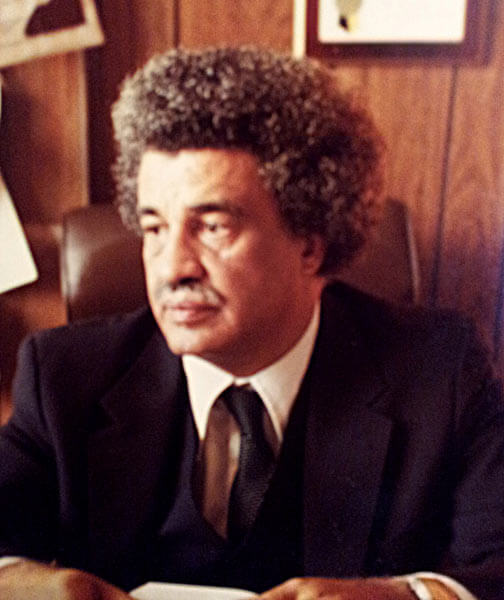By Joe Anuta
After the longtime pastor of Ebenezer Baptist Church in Flushing died late last month, his funeral Friday served as a sombre way to start off Black History Month. He was 81.
The Rev. Timothy Mitchell was not only a religious and civic leader in Queens, but also involved with the civil rights movement and marched with the Rev. Dr. Martin Luther King Jr., according to his son James Mitchell.
“He touched a lot of lives with his ministry and his belief that all people should have the same opportunity and should be treated equally,” he said. “He didn’t just preach about it, he rolled up his sleeves and worked at it as well.”
Ebenezer Baptist Church, at 36-12 Prince St., was standing room-only as well-wishers packed the pews and any available space to pay their respects.
Two prominent civil rights activists from Harlem, the Revs. Al Sharpton and Calvin Butts, also spoke at the event to pay their respects to Mitchell, who at times rose to prominence on the national stage but could always be found administering to his flock back in Queens, where he was born and raised.
Mitchell was born in 1930 and graduated from Flushing High School before enlisting in the U.S. Army and fighting in the Korean War.
Upon his return, he graduated from Queens College with degrees in history and theology.
Later in life, he would go on to earn a master’s degree in theology from New York University and a doctorate of divinity from the New York Theological Seminary.
Mitchell married Judith Emily Lawrence in 1957 and the two had four children. They remained together until her death in 2006.
After Mitchell began preaching at Ebenezer in 1961, following in his father’s footsteps, he also began to take on a greater civic role by participating in the civil rights movement.
During that same year, he marched with Dr. Martin Luther King Jr. in Georgia, where groups including the Student Nonviolent Coordinating Committee and the National Association for the Advancement of Colored People protested Jim Crow laws.
Mitchell was arrested along with King.
Seven years later, he was elected chairman of King’s Poor People’s Campaign, which sought to acquire low-income housing and jobs for the nation’s poverty-stricken residents, regardless of race.
Mitchell did plenty on the home front as well, according to his son.
“Some of the things he was most proud of were the things that never made it in the paper,” he said.
He baptized more than 500 homeless men and taught theology to inmates in New York state prisons. In Queens, he started the first Head Start program, the first community day care center and a breakfast program for low-income students.
But his time at Ebenezer was not without controversy.
In the late 1980s, Mitchell, along with Sharpton, sheltered a girl named Tawana Brawley and her family after she accused six white men of raping her in Dutchess County.
The ensuing investigation ignited racial tensions and grabbed headlines across the nation.
A grand jury ultimately found her story without merit, though the Brawley family as recently as 2007 maintained the attack took place.
But on Friday, Mitchell was remembered for his selflessness throughout his life, which according to his son can serve as an example of how black history needs to continuously be written.
“I think during Black History Month we should honor and celebrate his life,” his son said. “But his death should also be seen as a challenge for us to do something that impacts the lives of others and not just ourselves. We need new black heroes.”
Reach reporter Joe Anuta by e-mail at januta@cnglocal.com or by phone at 718-260-4566.

































